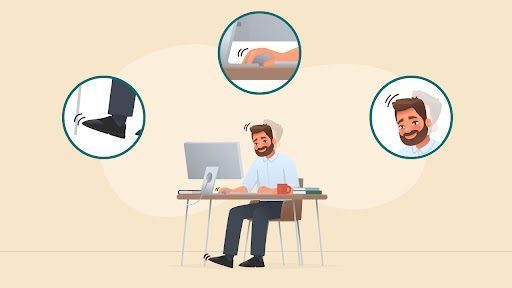
The Role of Sleep in Heart Health

Your heart beats roughly 2.5 billion times in a lifetime and is responsible for delivering oxygen-rich blood to the tissues and organs for their functioning. So, the importance of keeping your heart healthy cannot be stressed enough. When we think about heart health, we often focus upon maintaining an active lifestyle and a healthy diet. What remains really understated is the role of sleep.
According to a 2016 report from the American Heart Association, sleeping too much or too little, as well as sleep disorders such as insomnia and sleep apnea, are associated with increased risk of developing a heart condition.
Without enough sleep, regardless of your weight, age, activity level, or lifestyle habits, the risk of developing a heart disease is much more.
How does sleep affect your heart health?
While you may think there is not much brain activity happening when you’re sleeping, your brain channels through different stages of sleep that promotes recovery and improved performance.
Sleep stages are divided into non-rapid eye movement (NREM) and rapid eye movement (REM). During the NREM stage, the blood pressure drops, heart rate slows down, and breathing stabilizes. This helps reduce the stress on the heart. REM is the stage where you have dreams and brain activity is similar to that during wakefulness, even though the body remains in the paralyzed state of sleep.
If you do not get sufficient sleep or have interrupted sleep, your heart cannot benefit from the deep stages of NREM, and as a result, the chances of developing high blood pressure, stroke, high cholesterol, and diabetes increase. Also, unhealthy sleeping patterns contribute to chronic stress, eating disorders, lethargy and physical inactivity, and mental disorders — all of which add to the risk of developing heart disease.
1. Sleep and blood pressure
Your blood pressure does not fluctuate randomly through the day, rather it follows a circadian rhythm. Blood pressure variation across 24 hours follows a particular pattern, with a peak in early morning and a decrease in the night, called dipping. Night time or nocturnal dipping, where your blood pressure drops 10%-15% plays an important role in maintaining your cardiovascular health. For most people, blood pressure falls at night.
But poor or disrupted sleep or conditions like sleep apnea or insomnia are associated with non-dipping. This means that the blood pressure does not go down at night. An elevated nighttime blood pressure is linked to hypertension, increased risk of heart attack, and stroke.
2. Sleep and coronary heart disease
Coronary artery disease is a condition in which fatty deposits called plaques build up in the arteries, causing narrowing and hardening of the arteries. This reduces the blood and oxygen flow to the heart. Research suggests that poor sleep triggers chronic inflammation that promotes the formation of plaque in the vessels. A study by the American Cancer Society, showed that people who slept for four hours or less had a higher risk of dying from coronary heart disease than those who slept for seven to nine hours.
3. Sleep and heart attack
Myocardial infarction or heart attack occurs when the blood flow to the heart gets blocked. Heart attacks can be fatal as the lack of oxygen to the heart cells eventually causes them to get damaged.
Improper sleep heightens the risk of heart attacks. Research suggests that people sleeping less than six hours per night have a 20% higher chance of a heart attack.
Sleep interruptions have also been linked to the potential for heart attacks. Both heart rate and blood pressure can abruptly spike upon awakening, frequent sleep disruptions can cause cardiac stress, and may induce a heart attack.
4. Sleep apnea and heart health
Obstructive sleep apnea (OSA), a common sleep disorder, is characterized by irregular breathing patterns, in which a person stops breathing as the tongue or throat tissues block the airway. When you stop breathing, your body wakes up and this can happen multiple times in one night. This becomes obvious in the form of loud snoring, frequent awakenings at night, restless sleep, and daytime drowsiness. People with OSA have a higher risk of developing stroke and coronary heart disease.
Also read: Heart Health: How to Care for the Vital Organ
How much sleep is good for the heart?
The National Sleep Foundation in 2015 updated their sleep duration recommendations for across age groups.
| Age group | Recommendation |
|---|---|
| Newborns (0-3 months) | 14-17 hours |
| Infants (4-11 months) | 12-15 hours |
| Toddlers (1-2 years) | 11-14 hours |
| Pre-schoolers (3-5 years) | 10-13 hours |
| Children (6-13 years) | 9-11 hours |
| Teenagers (14-17 years) | 8-10 hours |
| Young adults (18-25 years) | 7-9 hours |
| Adults (24-64 years) | 7-9 hours |
| Older adults (≥65 years) | 7-8 hours |
What can you do to get better sleep?
It is not uncommon to have trouble sleeping once in a while, but if poor sleep has been a part of your routine and is affecting your daily functioning, you might want to check your habits.
1. Try maintaining a regular sleep schedule. Go to bed at the same time each night and get up at the same time every morning, including weekends. This will help regularise your body’s internal clock.
2. Get enough morning sunlight as it helps you sleep better at night. Light influences your circadian rhythm and helps regularise the pattern of sleep and wakefulness.
3. Stay active during the day and try not to perform vigorous physical exercise within a few hours of bedtime.
4. Avoid using your computer, mobile phone or TV at least half an hour before you go to bed. Research shows that blue light from these devices correlates to daytime sleepiness, poor sleep quality, and sleep disturbances.
5. Eating a heavy meal right before you go to sleep can cause acid reflux that may lead to symptoms of heartburn and leave a bitter taste in your mouth.
6. Avoid having caffeinated or alcoholic beverages before bedtime. Caffeine blocks the action of adenosine, which is a sleep-promoting chemical produced in the brain. This blocking of adenosine prevents the onset of sleep and keeps the individual awake for a long duration
7. Sleep in an environment that is cool, dark, and quiet. In response to darkness, your body produces a substance called melatonin, which promotes sleepiness. Exposure to light blocks the secretion of melatonin and can interfere with the circadian rhythm.
Your heart is a muscle and like any other muscle in the body, it needs rest, too. If you have an underlying sleep disorder, the chances are you won’t be aware of its symptoms as they occur while you are sleeping. Ask your bed partner or someone who has observed you sleeping to find out if you exhibit any signs of sleep disorder.
In case you are not able to regularize your sleep pattern or are not getting enough sleep despite taking the above measures, it is advisable that you consult a physician for the same.













